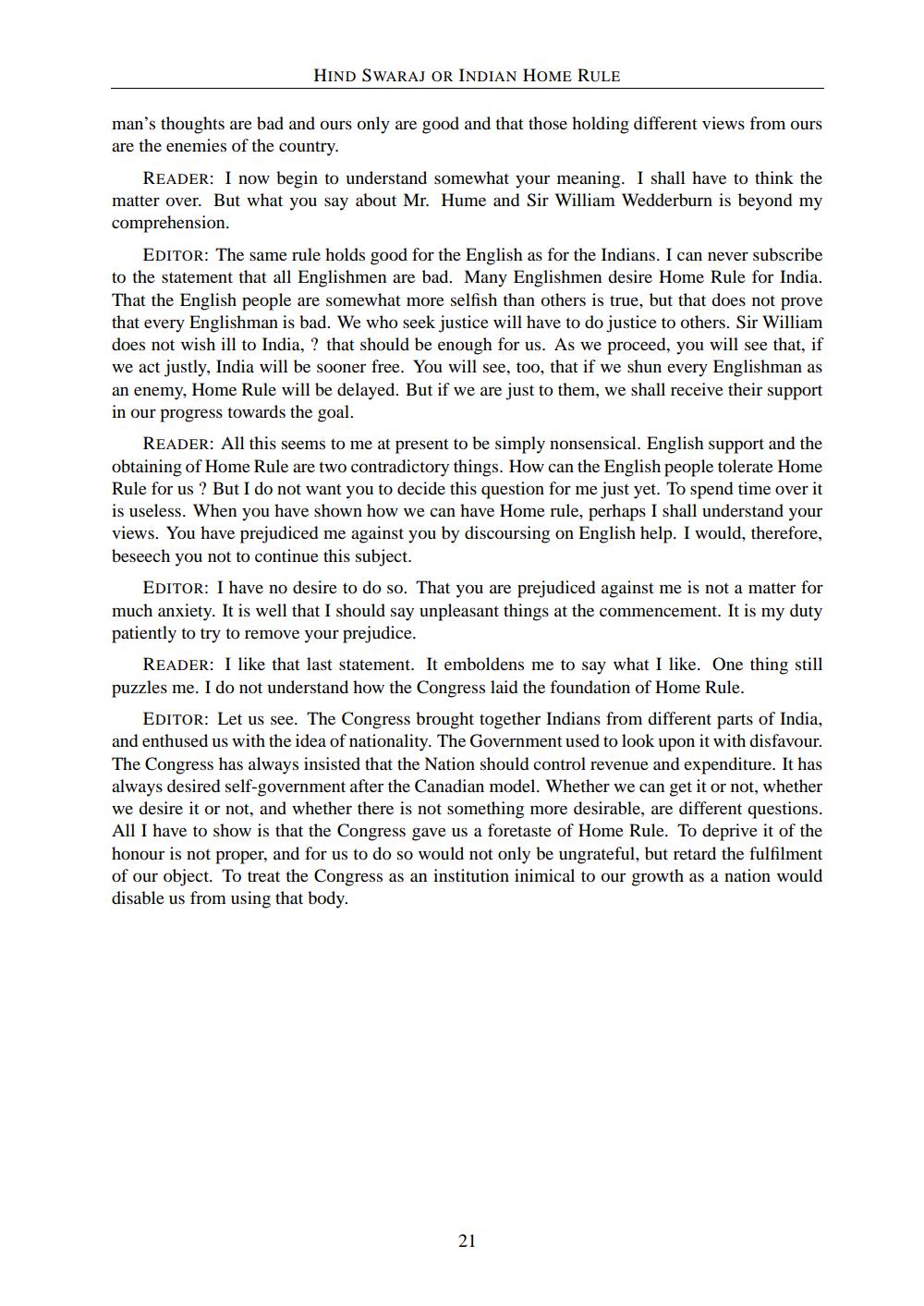________________
HIND SWARAJ OR INDIAN HOME RULE
man's thoughts are bad and ours only are good and that those holding different views from ours are the enemies of the country.
READER: I now begin to understand somewhat your meaning. I shall have to think the matter over. But what you say about Mr. Hume and Sir William Wedderburn is beyond my comprehension.
EDITOR: The same rule holds good for the English as for the Indians. I can never subscribe to the statement that all Englishmen are bad. Many Englishmen desire Home Rule for India. That the English people are somewhat more selfish than others is true, but that does not prove that every Englishman is bad. We who seek justice will have to do justice to others. Sir William does not wish ill to India, ? that should be enough for us. As we proceed, you will see that, if we act justly, India will be sooner free. You will see, too, that if we shun every Englishman as an enemy, Home Rule will be delayed. But if we are just to them, we shall receive their support in our progress towards the goal.
READER: All this seems to me at present to be simply nonsensical. English support and the obtaining of Home Rule are two contradictory things. How can the English people tolerate Home Rule for us? But I do not want you to decide this question for me just yet. To spend time over it is useless. When you have shown how we can have Home rule, perhaps I shall understand your views. You have prejudiced me against you by discoursing on English help. I would, therefore, beseech you not to continue this subject.
EDITOR: I have no desire to do so. That you are prejudiced against me is not a matter for much anxiety. It is well that I should say unpleasant things at the commencement. It is my duty patiently to try to remove your prejudice.
READER: I like that last statement. It emboldens me to say what I like. One thing still puzzles me. I do not understand how the Congress laid the foundation of Home Rule.
EDITOR: Let us see. The Congress brought together Indians from different parts of India, and enthused us with the idea of nationality. The Government used to look upon it with disfavour. The Congress has always insisted that the Nation should control revenue and expenditure. It has always desired self-government after the Canadian model. Whether we can get it or not, whether we desire it or not, and whether there is not something more desirable, are different questions. All I have to show is that the Congress gave us a foretaste of Home Rule. To deprive it of the honour is not proper, and for us to do so would not only be ungrateful, but retard the fulfilment of our object. To treat the Congress as an institution inimical to our growth as a nation would disable us from using that body.
21




